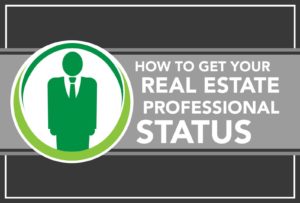Understanding IRS Requirements for Real Estate Professionals
The IRS has specific criteria that real estate professionals must meet to qualify for tax deductions. Primarily, these include the 750-hour rule and the requirement for material participation in real estate activities. To be classified as a real estate professional, individuals must spend more than half of their working hours in real estate trades or businesses and fulfill the 750-hour requirement across all properties they manage.
It's essential to maintain detailed records of all real estate activities to substantiate the hours worked. This documentation is crucial during tax filing, as the IRS may require proof of your participation levels. Failure to provide adequate evidence can disqualify you from receiving significant tax deductions available to real estate professionals.
Importance of Record-Keeping for Tax Deductions
Effective record-keeping is a cornerstone of successfully qualifying for real estate professional status. Keeping track of hours worked, tasks performed, and income generated from each property is vital. This not only helps in meeting IRS requirements but also assists in maximizing tax benefits related to property management.
Utilizing tools such as spreadsheets or dedicated accounting software can streamline the process of tracking your real estate activities. By regularly updating your records, you can ensure that you are prepared for any audits and can confidently claim your deductions without fear of penalties.
Strategies for Material Participation in Real Estate
Material participation is a critical factor in qualifying for real estate professional status. To demonstrate material participation, you must be involved in the operations of your rental properties significantly. This can include activities such as managing tenants, overseeing repairs, or handling financial aspects of the properties.
Engaging in these activities not only helps meet the IRS criteria but also enhances the overall performance of your real estate investments. For instance, actively managing your properties can lead to better tenant satisfaction and reduced vacancy rates, ultimately improving your investment returns.
Common Mistakes to Avoid When Qualifying
Many real estate professionals make common mistakes that can jeopardize their ability to qualify for tax deductions. One of the most frequent errors is failing to accurately track and document the hours spent on real estate activities. Without proper records, you cannot prove your eligibility, leading to missed tax benefits.
Another mistake is misunderstanding the requirements for material participation. Some may assume that simply owning a property qualifies them, but active involvement is necessary. Educating yourself about these requirements and regularly reviewing your practices can help you avoid these pitfalls and ensure you maximize your tax advantages.
Understanding IRS Requirements for Real Estate Professionals
The IRS has specific criteria that real estate professionals must meet to qualify for tax deductions. Primarily, these include the 750-hour rule and the requirement for material participation in real estate activities. To be classified as a real estate professional, individuals must spend more than half of their working hours in real estate trades or businesses and fulfill the 750-hour requirement across all properties they manage.
It's essential to maintain detailed records of all real estate activities to substantiate the hours worked. This documentation is crucial during tax filing, as the IRS may require proof of your participation levels. Failure to provide adequate evidence can disqualify you from receiving significant tax deductions available to real estate professionals.
Importance of Record-Keeping for Tax Deductions
Effective record-keeping is a cornerstone of successfully qualifying for real estate professional status. Keeping track of hours worked, tasks performed, and income generated from each property is vital. This not only helps in meeting IRS requirements but also assists in maximizing tax benefits related to property management.
Utilizing tools such as spreadsheets or dedicated accounting software can streamline the process of tracking your real estate activities. By regularly updating your records, you can ensure that you are prepared for any audits and can confidently claim your deductions without fear of penalties.
Strategies for Material Participation in Real Estate
Material participation is a critical factor in qualifying for real estate professional status. To demonstrate material participation, you must be involved in the operations of your rental properties significantly. This can include activities such as managing tenants, overseeing repairs, or handling financial aspects of the properties.
Engaging in these activities not only helps meet the IRS criteria but also enhances the overall performance of your real estate investments. For instance, actively managing your properties can lead to better tenant satisfaction and reduced vacancy rates, ultimately improving your investment returns.
Common Mistakes to Avoid When Qualifying
Many real estate professionals make common mistakes that can jeopardize their ability to qualify for tax deductions. One of the most frequent errors is failing to accurately track and document the hours spent on real estate activities. Without proper records, you cannot prove your eligibility, leading to missed tax benefits.
Another mistake is misunderstanding the requirements for material participation. Some may assume that simply owning a property qualifies them, but active involvement is necessary. Educating yourself about these requirements and regularly reviewing your practices can help you avoid these pitfalls and ensure you maximize your tax advantages.

